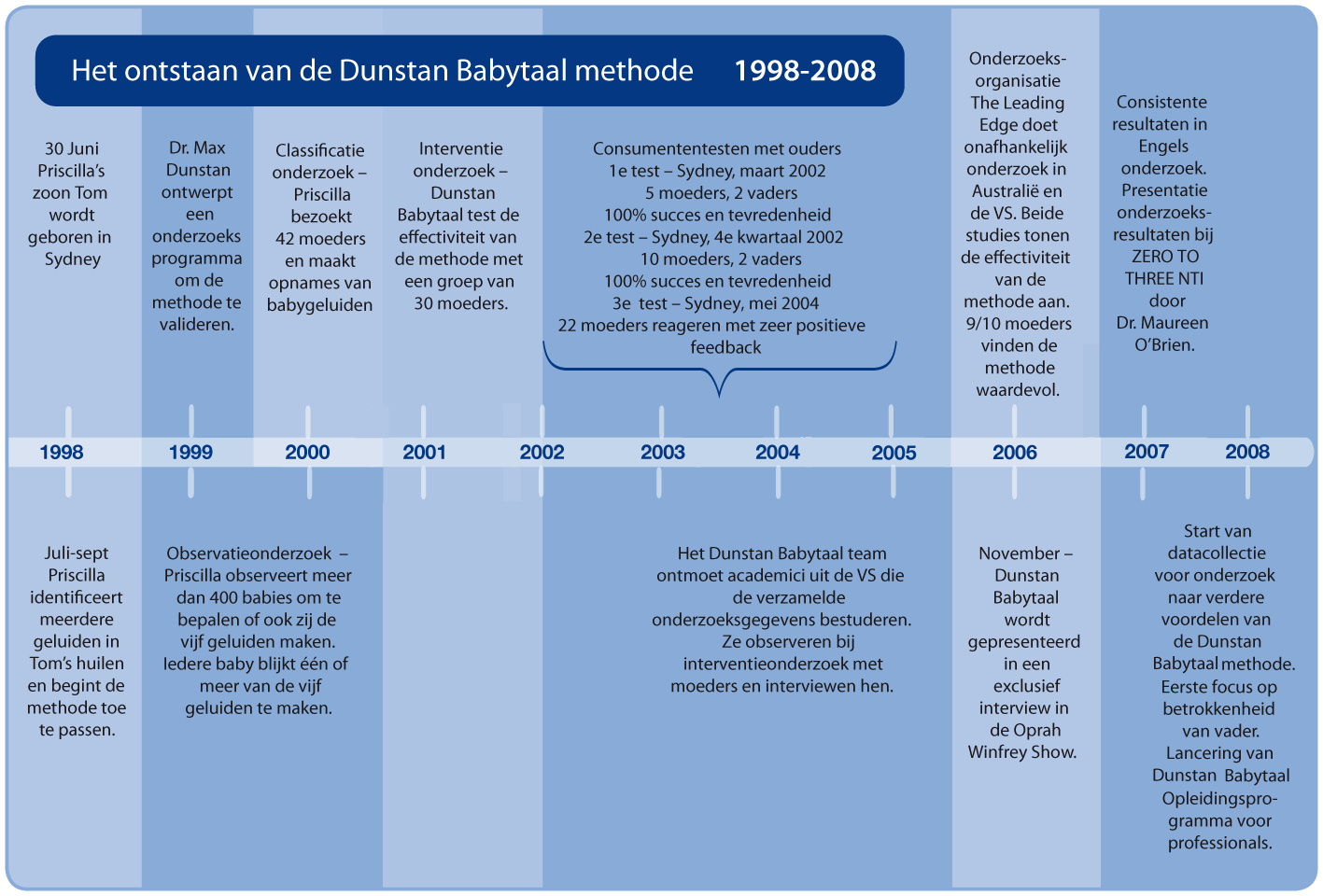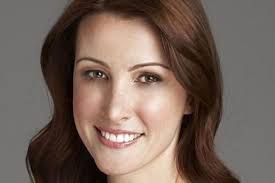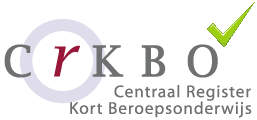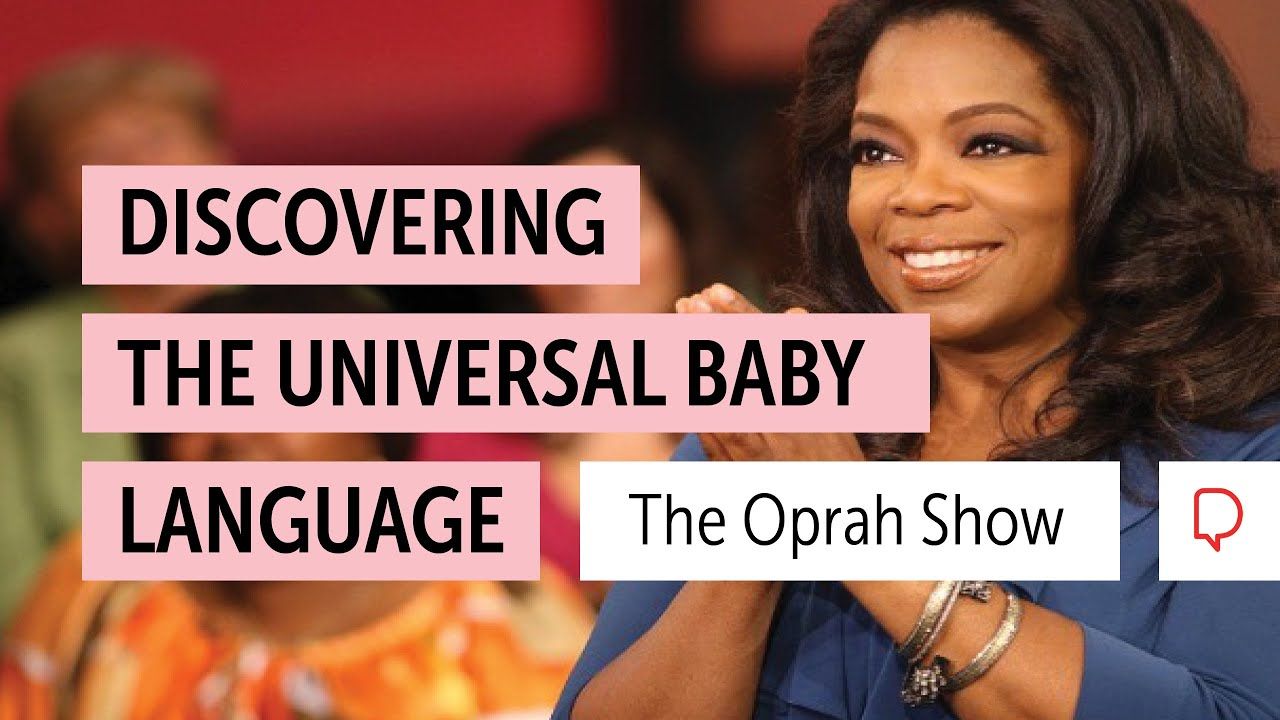Priscilla Dunstan
Dunstan Baby Language
On this page you can read how Baby Language was discovered, what research has been done and what the results are.
The Dunstan Baby Language Story
In 1998, Priscilla became the mother of son Tom. Through her special hearing, Priscilla discovered that her son Tom's cries were not just random sounds. She kept a diary of the different combinations of sounds and noticed that each sound was connected to a specific need. In this way, she knew by recognizing the sound what she could do to calm him down again.
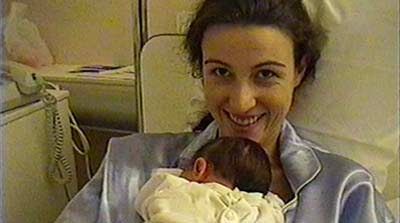
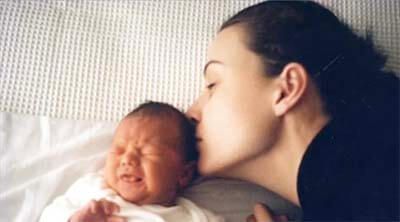
Research
After her own experiences with Tom, Priscilla's theory was tested on over a thousand babies of over thirty nationalities. Nine years of observations and tests were carried out, supplemented by three large international studies. All three studies confirmed the existence of the universal reflex sounds.
Since 1998, Dunstan Baby Language has been thoroughly researched. More than a thousand babies and their parents from seven different countries with more than thirty different nationalities were involved. The scientific research was conducted in Australia, the United States and Great Britain in 2006 and 2007. Research also continues in the Netherlands. For example, a study was completed at the University of Amsterdam in the summer of 2024. This study focused on whether and what effect the application of the method has on mothers.
Research results
1.
Parents are enthusiastic about the method
2.
Baby cries less and is satisfied more quickly
3.
Parents experience less stress
4.
Parents have more self-confidence
5.
The situation is under control more quickly
6.
Better parent-child relationship
7.
Better relationship between parents
8.
Better nutritional results
9.
Less interrupted sleep for baby (and parents)
